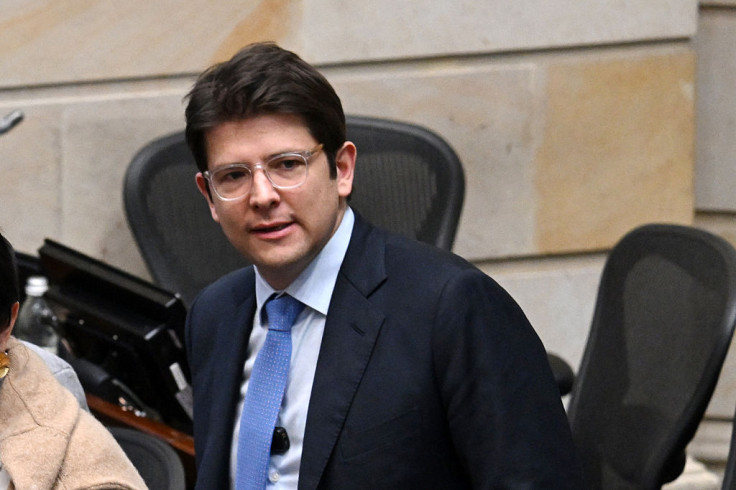
The 15-year-old hitman who shot Colombian senator and presidential hopeful Miguel Uribe Turbay on June 7 was sentenced this week to spend seven years in a "specialized care center," the maximum legal sentence for minors.
Uribe Turbay succumbed to his injuries on August 11, more than two months after the teenager shot him three times at a campaign event in western Bogotá.
The sentence has received a mixed reception, with Uribe's family and top conservative politicians criticizing the child protection law that governs proceedings against minors.
"We respect the decision, but that punishment can never be equated with the life that was taken or the pain caused," wrote Victor Mosquera Marin, the Uribe family's lawyer, in a social media post following the ruling.
The lawyer also criticized the 2006 Childhood and Adolescence Code – which prevents offenders under the age of 18 from being sentenced to more than 7 years in custody – saying it "encourages minors to be used in crime without real and effective punishment."
Other public figures were also critical, with leading right-wing presidential hopeful Vicky Dávila calling for the teenager to be tried as an adult and proposing to change the law.
"When a teenager commits a crime, the social reaction is often to call for exemplary punishments, similar to those received by adults," explained Hilda Molano, coordinator at the Coalition Against the Involvement of Children and Young People in the Armed Conflict in Colombia (COALICO).
But despite many prominent voices demanding tougher punishment, Colombian authorities have shown restraint when dealing with the hitman. In an interview with Colombian news outlet Caracol Radio days after the attack, Ombudsman Iris Marín, who is responsible for advocating for human and civil rights in Colombia, called for the adolescent's "protection."
"This is not an isolated case. It reflects how teenagers are used by organized crime, even in cities like Bogotá," said Marín.
Authorities also quickly acknowledged that the 15-year-old was not the intellectual author of the attack.
"We are perfectly aware that this young man is merely the perpetrator," said Attorney General Luz Adriana Camargo at the time.
While Uribe's assassination is the most recent and high-profile example of minors being instrumentalized by criminals, the phenomenon is not uncommon in Colombia.
In 1990, presidential candidate Bernardo Jaramillo was killed by a 15-year-old hitman. More recently, NGOs are warning of increasing child recruitment to armed rebel groups in Colombia's rural areas.
According to COALICO coordinator Molano, criminal gangs take advantage of the law to use minors to commit crimes.
"They recruit teenagers because they know they receive lighter sentences," she told the Latin Times.
But in contrast to voices calling for a change to the law, Molano believes "the solution is not to toughen penalties, but to close the door to recruitment."
She explained that minors facing difficult socioeconomic conditions are the most likely to be targeted by criminal organizations. Considering this, she called for greater action in providing job and educational opportunities, psychosocial assistance and prevention programs against organized crime.
"Excessive punishment only reinforces the cycle of exclusion and violence, while educational, restorative, and resocialization measures can transform their life plan and prevent them from reoffending," said Molano.
However, arguments by child protection groups like COALICO appear unlikely to restrain politicians seeking a change to the law.
Carolina Arbeláez, a Member of Colombia's House of Representatives, announced on Wednesday that she and another lawmaker had drafted a bill to amend the law so that "minors who commit heinous crimes are tried with the same severity as adults."
© 2025 Latin Times. All rights reserved. Do not reproduce without permission.




